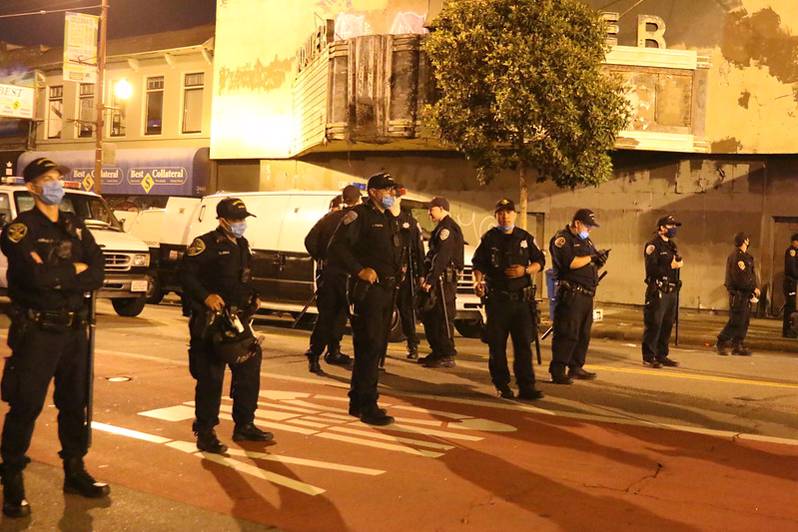
The sometimes-violent antigovernment demonstrations that erupted during 2020 and 2021 were fueled in part by the spread of extremist ideologies, conspiratorial thinking, and political polarization. New research published in the journal Psychological Science also puts some of the blame for civil unrest and political violence on the psychological burden of the COVID-19 pandemic.
The COVID-19 pandemic is the most severe global health crisis of the 21st century. While media reports and policy directives tend to focus on the health and economic aspects of the pandemic, new research suggests that the pandemic is also destabilizing the fundamental relationship between citizens and the state.
"The pandemic has disrupted our normal way of living, generating frustrations, unprecedented social exclusion, and a range of other concerns," said Henrikas Bartusevičius, a researcher with PRIO and coauthor on a paper published in the journal Psychological Science. "Our investigations show that the psychological toll of living through a pandemic also stoked antigovernment attitudes and motivations for political violence."
Bartusevičius and his colleagues asked some 6,000 adults from the United States, Denmark, Italy, and Hungary if the COVID-19 pandemic had negatively affected their health, finances, relationships, and rights. The interviewees were also asked to report if they felt dissatisfaction with their societies and governments and whether they were motivated to engage in or had already engaged in protests or political violence.
The results from this survey uncovered striking associations between the psychological burden of COVID-19 and highly disruptive sentiments and behaviors, including the use of violence for a political cause. In contrast, the research revealed less consistent correlations between the COVID-19 burden and the motivation to engage in peaceful forms of activism.
"We were also surprised to find that COVID-19 burden does not need additional triggers to motivate political violence," said Bartusevičius. "It is seemingly enough on its own."
The researchers conceptualized COVID-19 burden as the overall psychological toll of living through a pandemic. It's the sum total of individual stresses a person experiences during a pandemic and the responses that governments take against it, such as lockdown measures.
The researchers found that in the United States specifically, those experiencing a higher COVID-19 burden were also more likely to report engagement in violence during the Black Lives Matter protests and counterprotests. The pandemic and associated lockdowns may have contributed to the frustrations that were unleashed in these events, the researchers said.
"This is the first time in the modern era that highly individualized Western democracies have faced a major pandemic," said coauthor Michael Bang Peterson, a researcher at Aarhus University in Denmark. Before the pandemic, there was little knowledge about how societies would respond to or cope with such a crisis. "Our research presents one of the first pieces of evidence on the disruptive potential of pandemics and associated lockdowns," he said.
The researchers did find differences across nations, with Danish respondents reporting the lowest COVID-19 burden and Hungarian respondents reporting the highest. However, there were no notable differences in the effects of COVID-19 burden across the four countries when it comes to anti-systemic attitudes and motivations to engage in political violence. For example, although the average Dane felt less burdened by the pandemic than respondents in other countries, Danes who felt more burdened showed anti-systemic attitudes and motivations for political violence similar to those reported elsewhere.
The researchers proposed several potential explanations for why pandemics can lead to antigovernment attitudes and behavior. The pandemic and lockdowns have unequally afflicted particular social groups, likely producing anger over group-based injustice that, in turn, can be directed against governments. In addition, the burden of COVID-19 may contribute to social exclusion and marginalization as normal social life disappears, which could fuel antisystemic attitudes and motivations for political violence.
The researchers concluded that in the aftermath of pandemics, recovery programs should do more than address public health concerns and the economy; they should also endeavor to repair the relationship between citizens and the political system.





